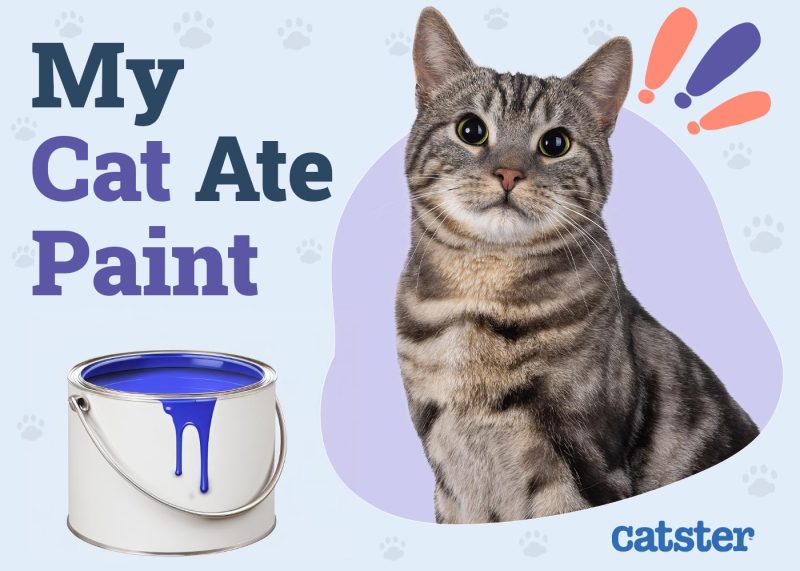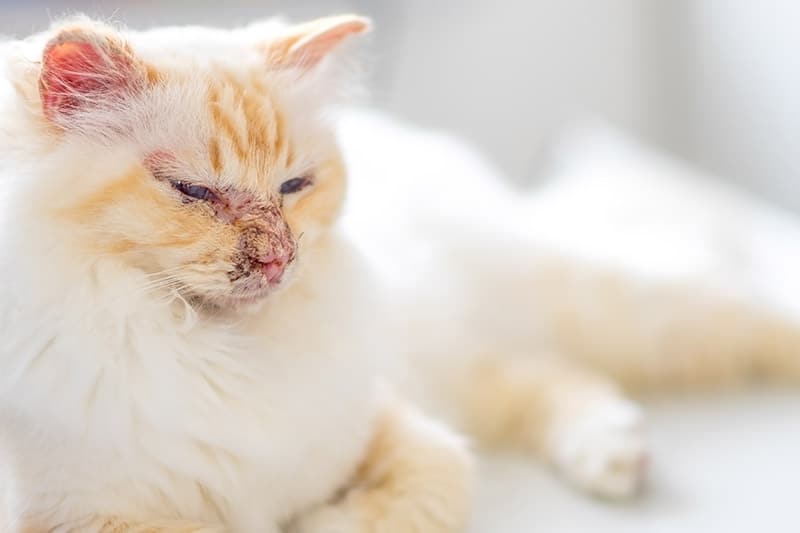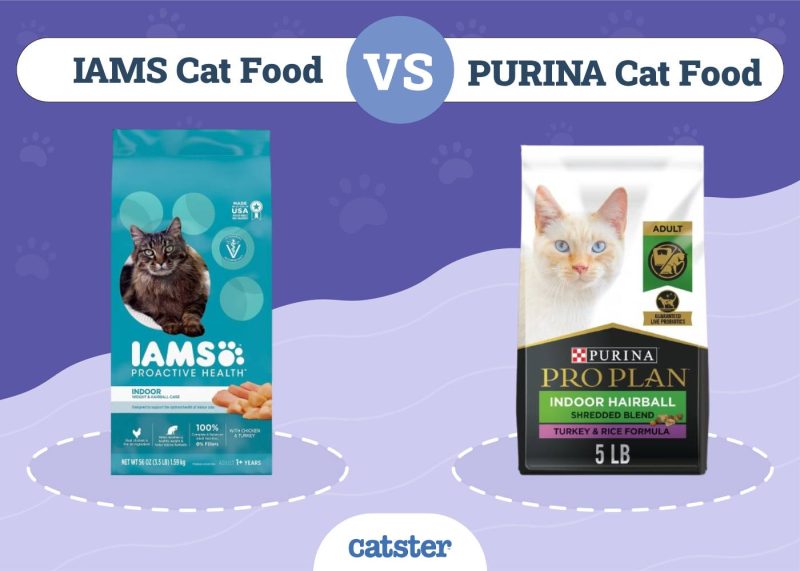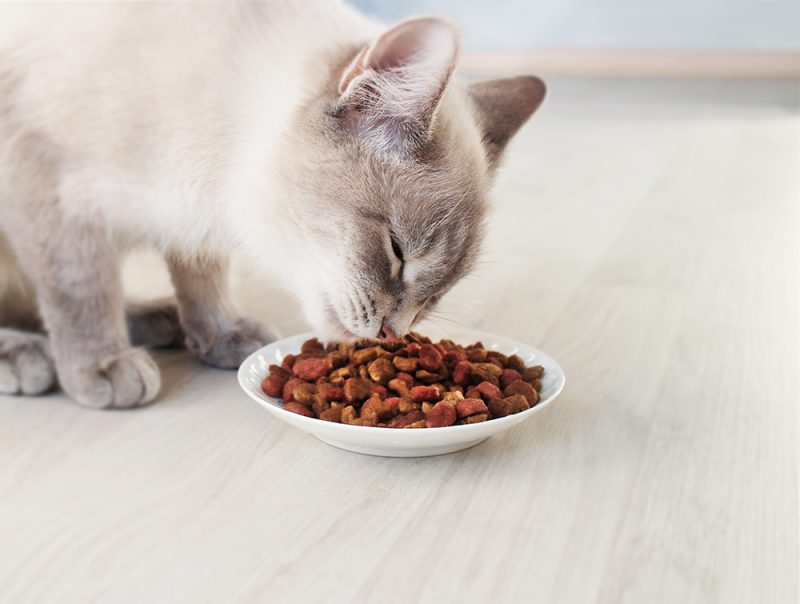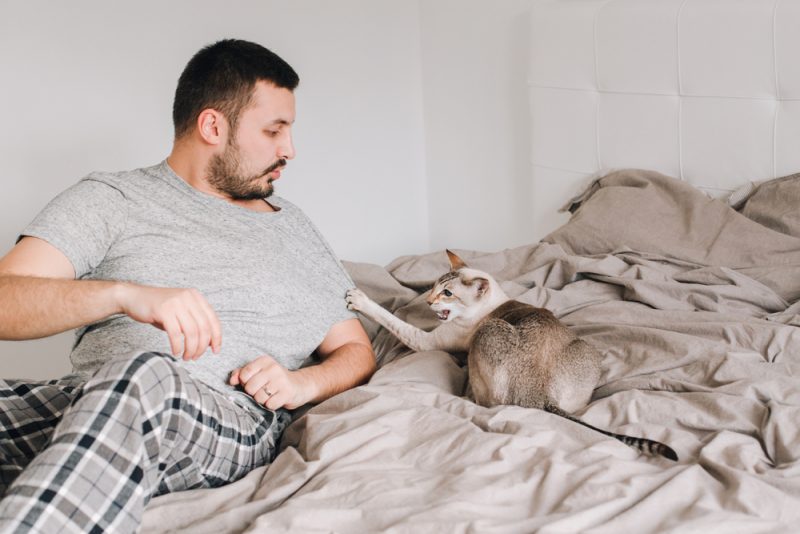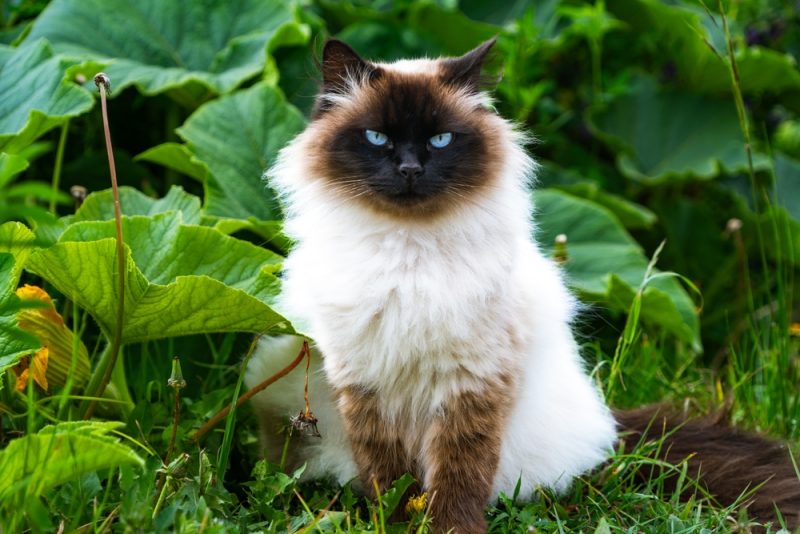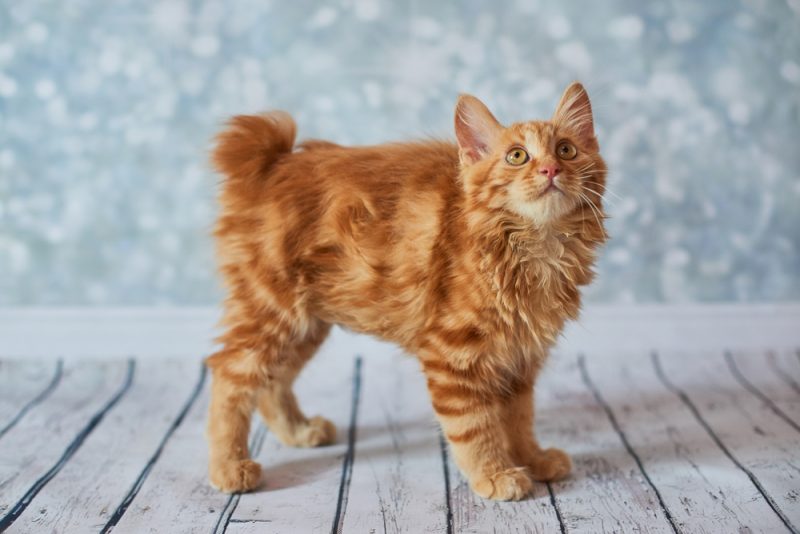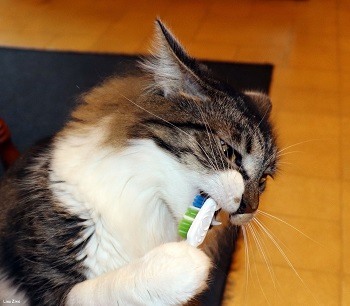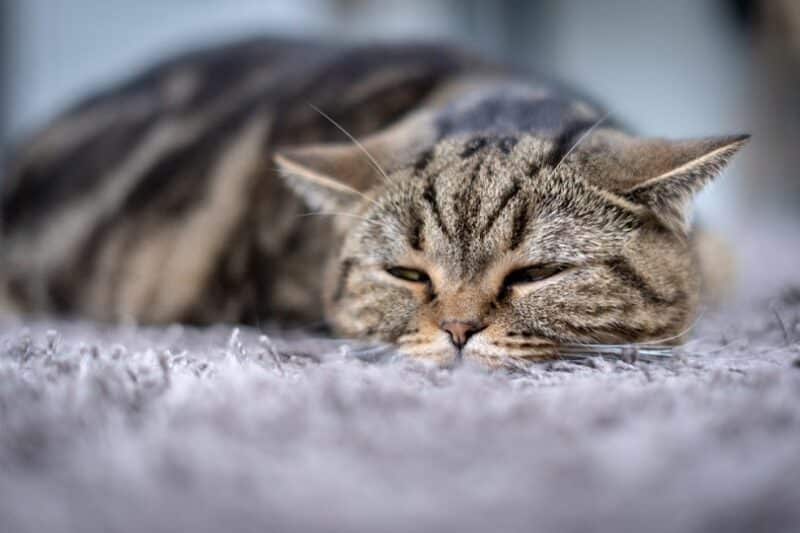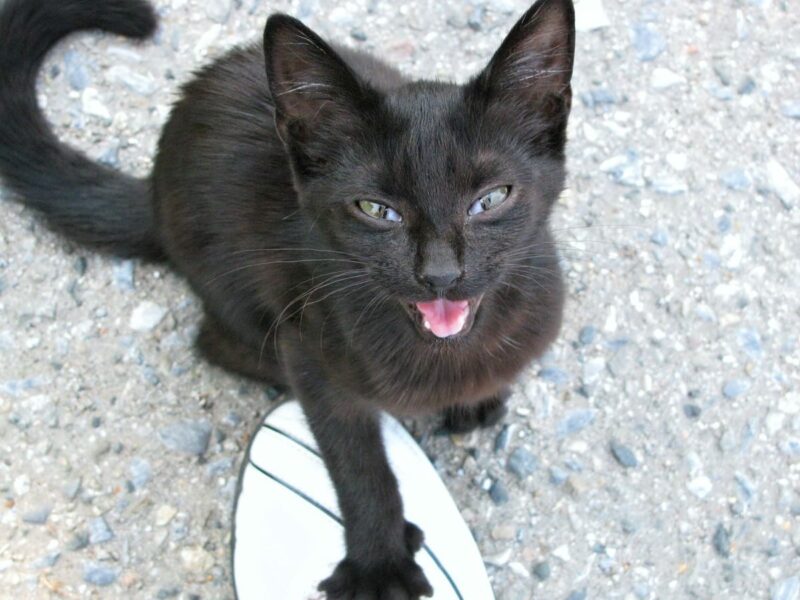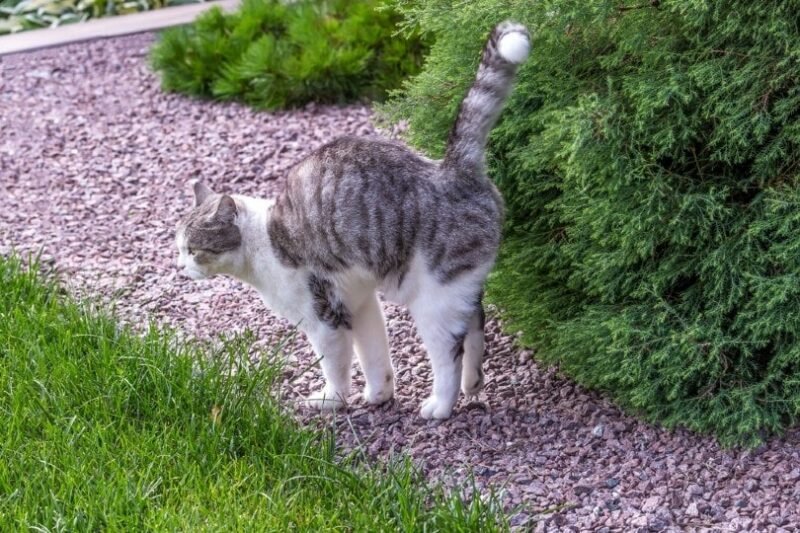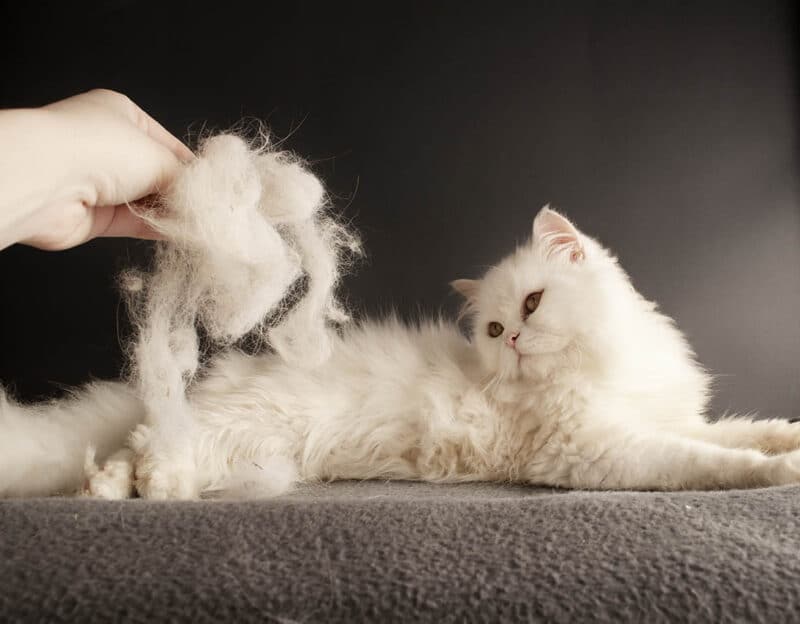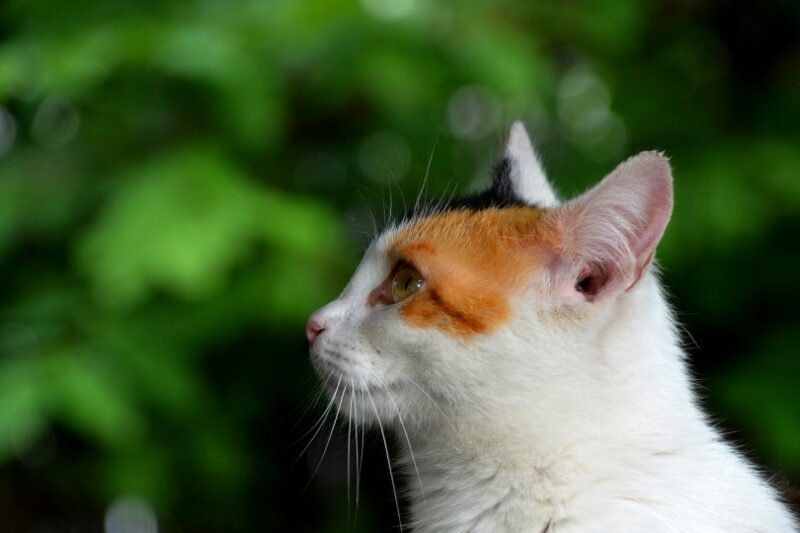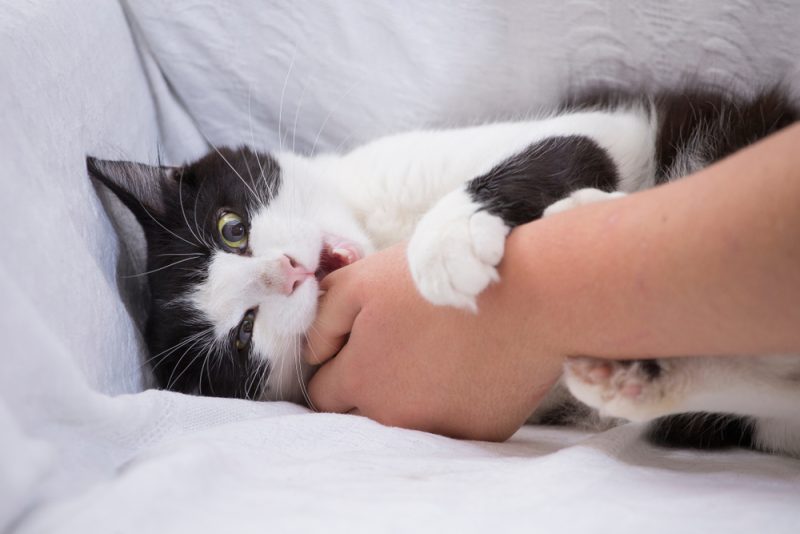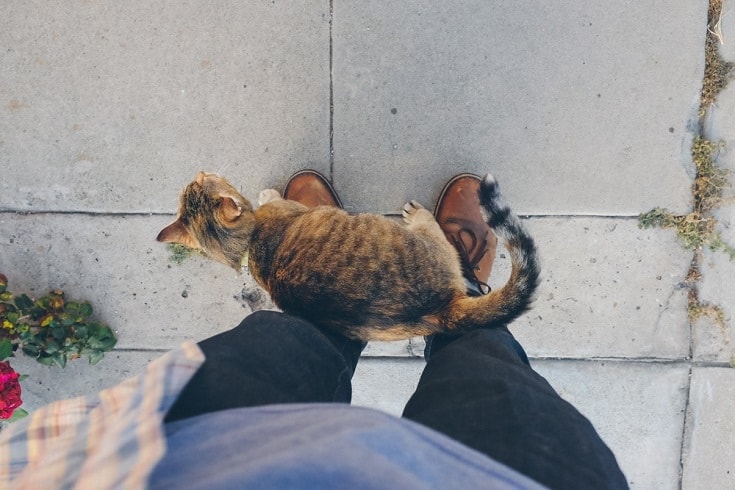In this article
View 3 More +Although cats are far less likely to eat foreign objects than dogs, it is still possible that an inquisitive kitten may get themselves into trouble now and then. Further, if a cat gets wet paint or paint flakes onto their haircoat, they may inadvertently “eat” the paint, by attempting to groom it off themselves.
There are more concerns with older paints, as more tend to be lead-based. Newer paints, however, are often made of different bases.
If you suspect your cat may have ingested some lead-based paint, often, monitoring the cat at home will be the recommended course of action, if it is a small amount of paint (e.g., a flake). However, larger amounts of ingested paint should be cause for concern—and pet poison hotlines exist for just this reason.
Read on to learn more about what to do if you find your cat eating paint.

What to Do if Your Cat Eats Paint?
Firstly, call your vet, or an emergency vet, to get their assessment of the situation. If they feel enough paint has been eaten, they may ask you to do one of two things: bring your cat in for an exam (and possibly bloodwork, and/or treatment for paint ingestion), or call a pet poison hotline to find out how toxic the amount of paint eaten might be for your cat.
If they ask you to call the poison hotline, plan to have as much information as possible about the paint in question—i.e., How much did your cat eat? How long ago? Any important details from the label and material safety data sheet (MSDS) that would be helpful for them to know.
If you need to speak with a vet but can't get to one, head over to PangoVet. It's an online service where you can talk to a vet online and get the advice you need for your pet — all at an affordable price!

What Are Signs My Cat May Have Eaten Paint?
Is your cat presenting any of these signs? We suggest you speak with a vet online.

Different Types of Paint And Their Risks
Lead-Based Paints
Lead-based paints tend to be found on older buildings. As such, they are becoming less and less common to encounter. In part, these paints have fallen out of favor due to the toxicity that they can cause with repeated exposure—resulting in lead poisoning (also called plumbism).
Generally, lead poisoning takes repeated exposure over longer periods of time. For our feline friends, this can involve ingesting paint flakes repeatedly—such as when grooming them off their haircoat—or chronically licking items covered in lead paints.
Lead poisoning can cause issues with red blood cell production, gastrointestinal issues, and other serious concerns. If you suspect your cat may have been exposed to lead-based paints and/or eaten them, contact your vet immediately for guidance on how to proceed.
Acrylic Paints
Some acrylic paints may contain pigments that can cause issues for cats, though most acrylic paints are generally less toxic than other paints. Read the label, and reach out to your vet if you have any questions—especially if you think your cat has eaten any!
Other Types of Paint
Some latex-based paints can contain anti-freeze (ethylene glycol), which, if ingested by pets, can cause vomiting and GI upset. However, the bigger cause for concern here is possible kidney failure.

When Eating Paint Could Be a Sign of Something More
Since cats aren’t made to eat paint, they generally shouldn’t! They are fastidious creatures and tend to shy away from eating non-food items (although string may be an exception!).
However, there is a medical condition called, “pica”—which means eating non-food items. Sometimes, pica can be a clinical sign of other issues. In cats, pica has been linked to low iron levels, as well as a variety of other concerns. So, if you find your cat eating paint or other items on a more regular basis, it’s time to contact your vet!


Conclusion
It is not a common situation to find yourself worrying about your cat having eaten paint. But, if you do ever find yourself in this situation, don’t panic.
Generally, it is not a true emergency, though it can certainly require quick veterinary intervention in some cases. If you can’t get in touch with your vet when it happens, pet poison hotlines are open 24/7 for these exact scenarios. They are always available to guide you on how to proceed, and how to help your cat in the situation.
Featured Image Credit By: Tatiana Chekryzhova, Shutterstock
